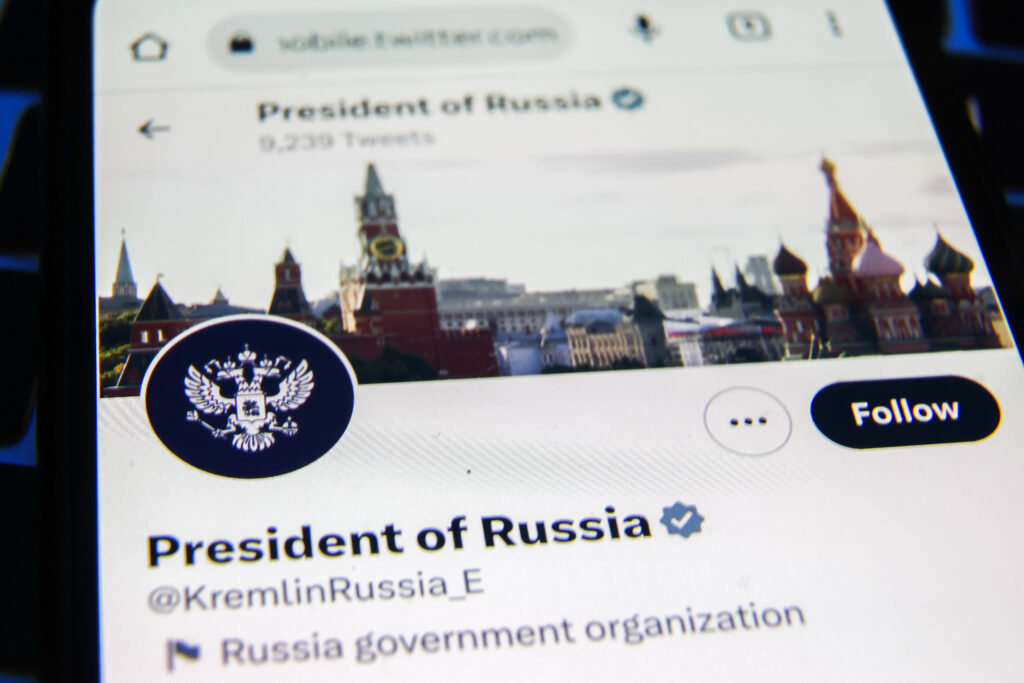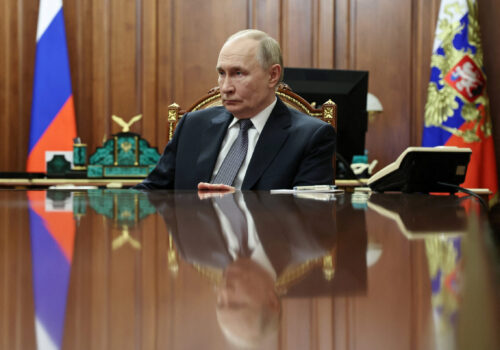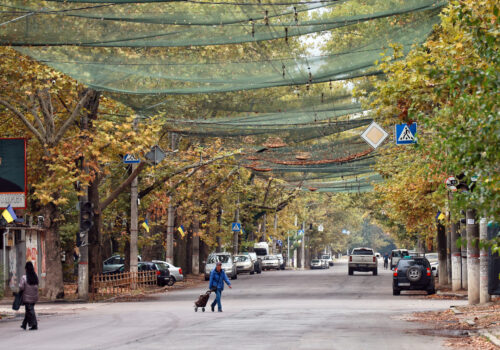Ever since Russia’s full-scale invasion of Ukraine began in February 2022, there has been growing alarm over the support that Moscow is receiving from fellow authoritarian regimes including Iran, North Korea, Belarus, and China. However, while Western officials have publicly raised concerns over material support for the Russian war effort, the issue of cooperation in the information sphere has received less attention.
This is short-sighted. Russia’s invasion of Ukraine has demonstrated the critical importance of the information front in modern conflicts. The lessons of the war in Ukraine have not been lost on the Kremlin, which invests vast sums to finance information operations and has repeatedly used disinformation to destabilize its opponents. China is also well aware of the increasing role played by information capabilities and has established a range of powerful tools. This is creating potentially significant challenges for Western policymakers.
Stay updated
As the world watches the Russian invasion of Ukraine unfold, UkraineAlert delivers the best Atlantic Council expert insight and analysis on Ukraine twice a week directly to your inbox.
Many Western countries continue to view the issue of information warfare as primarily a matter of fact-checking and debunking fakes. In contrast, there are growing indications that Moscow and Beijing share a vision of the information space as a key element of their power projection and national security strategies.
A recent meeting between Russian Prime Minister Mikhail Mishustin and his Chinese counterpart Li Qiang signaled deepening cooperation between Moscow and Beijing on the information front. The annual summit held in Hangzhou in early November featured commitments from both sides to partner on media initiatives, countering disinformation, and promoting traditional values.
Moscow already has extensive experience in information operations designed to disrupt and reshape Europe’s political landscape, and is widely regarded as a global pioneer in the use of multimedia information operations to advance foreign policy objectives. Beijing has also faced accusations of playing a role in these activities, which are aimed at exploiting social divisions and boosting polarizing narratives with a view to generating support for anti-establishment political forces throughout the Western world.
While measuring the success of information operations is not an exact science, there is certainly no shortage of evidence to suggest that these tactics are having an impact. Support for far-right political parties is now surging across Europe. While each party has its own individual agenda, these populist political forces tend to share a sympathetic stance toward Russia while enjoying extensive coverage on Kremlin-linked media platforms.
Eurasia Center events

Perhaps the clearest indication of cooperation between Russia and China in the information arena is the growing Russian state media presence on TikTok. This is alleged to include coordinated campaigns and the use of AI technologies.
Disinformation watchdogs from Ukraine’s National Security and Defense Council have accused the Kremlin of using the TikTok platform to conduct information campaigns designed to demoralize Ukrainian society and undermine resistance to Russia’s invasion. Ukrainian officials claim Moscow has employed AI to create videos featuring “ordinary Ukrainians” conveying pessimistic messages.
Russia is also reportedly using Chinese social media platforms to recruit Chinese citizens for the war in Ukraine. The large volume of recruitment adverts across China’s strictly controlled and monitored social media sphere has been interpreted by some as a sign of tacit approval from the authorities in Beijing.
Chinese and Russian information ecosystems appear to be engaging in significant cross-promotion. Kremlin outlets actively promote war-related content on platforms such as China’s Weibo. Meanwhile, Chinese state media and officials amplify key Kremlin narratives blaming the West for the Russian invasion of Ukraine and framing sanctions policies as self-defeating. Both Beijing and Moscow employ similar language to describe the war in Ukraine, which they typically depict as a defensive reaction to the West’s provocative policies.
As information cooperation between Moscow, Beijing, and other authoritarian regimes expands, Western policymakers must recognize that information warfare is now a tier-one national security threat requiring a comprehensive response. This should include signaling that information offensives will be treated as comparable to other violations of sovereignty, with the European Union and NATO working to establish clear diplomatic, legal, and economic red lines in the information domain.
Efforts must be undertaken to defend the information space more effectively by combining the initiatives of individual governments along with civil society. This could draw on a wide range of specific examples, such as Ukraine’s wartime experience and recent elections in Romania and Moldova. Greater accountability for hostile information operations is also crucial. Western governments must be prepared to publicly expose attacks and impose tangible costs.
The authoritarian axis that has taken shape since the onset of Russia’s full-scale invasion of Ukraine is currently setting new standards in terms of coordinated information operations across media platforms. The West’s response must be equally systematic. The tools and frameworks exist; Western governments must now demonstrate the necessary political will.
William Dixon is an associate fellow of the Royal United Service Institute specializing in cyber and international security issues. Maksym Beznosiuk is a strategic policy and security analyst with a focus on Ukraine, Russia, European security, and EU-Ukraine cooperation.
Further reading
The views expressed in UkraineAlert are solely those of the authors and do not necessarily reflect the views of the Atlantic Council, its staff, or its supporters.

The Eurasia Center’s mission is to enhance transatlantic cooperation in promoting stability, democratic values, and prosperity in Eurasia, from Eastern Europe and Turkey in the West to the Caucasus, Russia, and Central Asia in the East.
Follow us on social media
and support our work
Image: Beata Zawrzel via Reuters Connect




